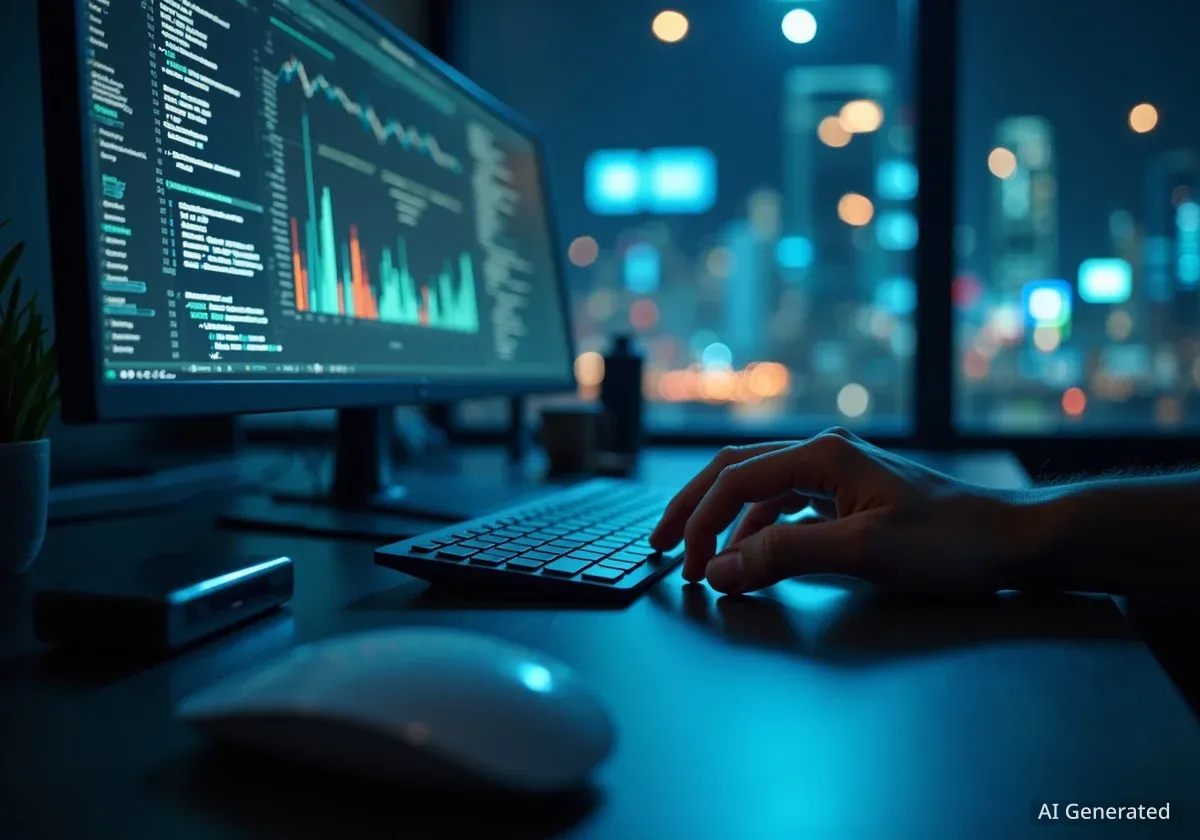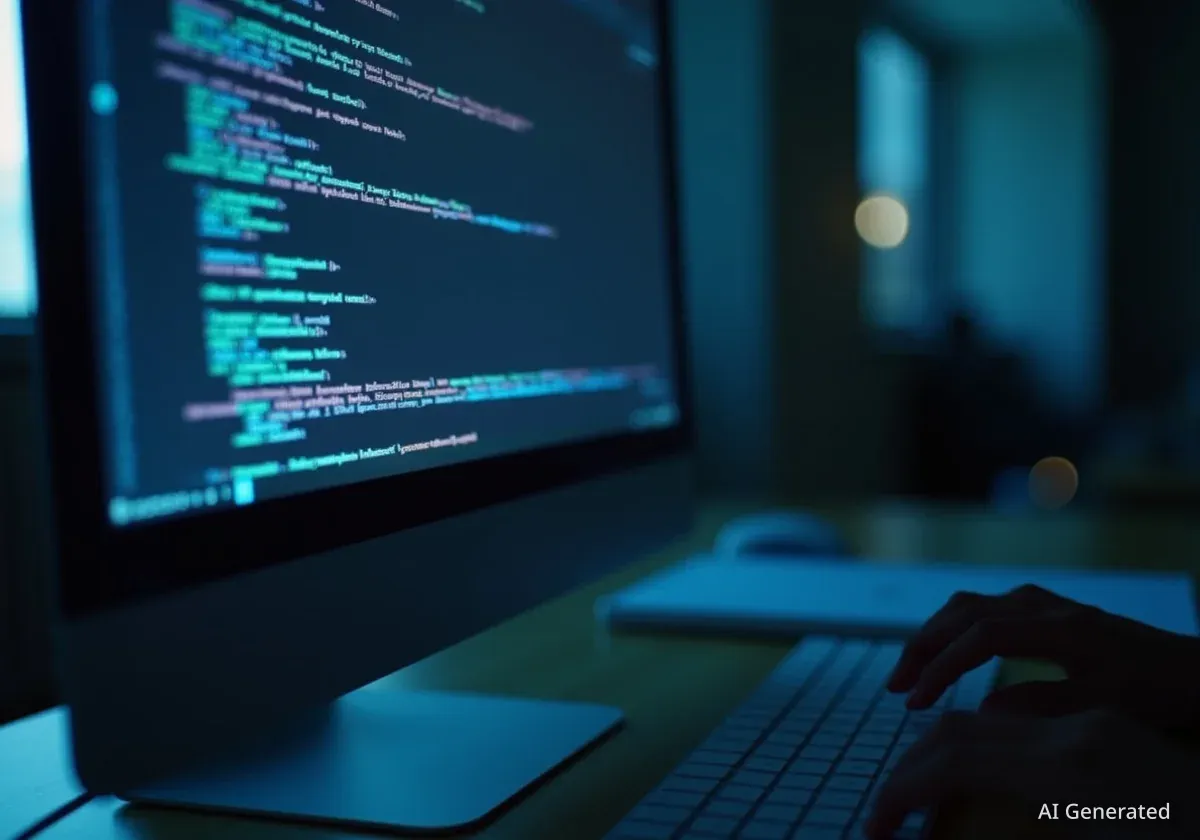Nvidia CEO Jensen Huang has offered a detailed look into his daily use of artificial intelligence, revealing he utilizes a suite of different AI platforms for specific tasks. During a recent press event in London, Huang explained how he leverages tools like Google's Gemini, xAI's Grok, Perplexity, and OpenAI's ChatGPT to enhance his productivity, research, and creative processes.
His comments came alongside a major announcement regarding Nvidia's investment in the UK's technology sector, highlighting the growing integration of AI into both corporate strategy and personal workflows for top executives.
Key Takeaways
- Nvidia CEO Jensen Huang uses multiple AI models daily, choosing each for its specific strengths.
- He uses Gemini for technical work, Grok for creative tasks, Perplexity for quick research, and ChatGPT for general purposes.
- Huang expressed significant enthusiasm for Google's AI image generator feature, known as "Nano Banana."
- Nvidia announced a $683 million equity investment in UK data center company Nscale as part of a larger push into the region.
- Huang believes AI is a critical tool for closing the global technology divide due to its ease of use.
A Multi-Tool Approach to Artificial Intelligence
Jensen Huang described his use of AI not as a reliance on a single platform, but as a strategic selection of the best tool for each job. He compared the different AI models to a specialized toolkit, each with unique capabilities that he applies to different aspects of his work.
This multi-platform strategy involves a process of cross-referencing and refinement. For critical research tasks, Huang noted that he often provides the same prompt to all the major platforms to compare their outputs.
"When I am doing something serious I will give the same prompt to all of them, and then I ask them to, because it’s research oriented, critique each other’s work. Then I take the best one."
This method allows him to synthesize information from multiple AI-generated sources, effectively using the models to check and balance one another before arriving at a final conclusion.
Huang's Preferred AI for Specific Tasks
The Nvidia chief provided a clear breakdown of his go-to AI services:
- For Technical Analysis: Huang stated he prefers to use Google's Gemini when dealing with more technical subject matter.
- For Creative and Artistic Needs: When his work involves a more artistic or conceptual approach, he turns to Grok.
- For Rapid Information Retrieval: For quick and efficient research, Huang uses Perplexity, noting, "it does a really good job of presenting research to me."
- For Everyday Use: For general, daily tasks and assistance, he said he enjoys using OpenAI's ChatGPT.
He views these tools as more than just assistants; he considers them partners in his thought process. "It’s a thinking partner, it’s truly terrific, and it saves me a ton of time," Huang explained. "Frankly, I think the quality of work is better."
The Rise of Specialized AI Models
The AI landscape has rapidly evolved from general-purpose chatbots to a diverse ecosystem of specialized models. Companies like Google (Gemini), OpenAI (ChatGPT), Anthropic (Claude), and xAI (Grok) are competing not just on general intelligence but also on specific strengths such as coding, creative writing, data analysis, and real-time information access. Huang's usage pattern reflects a sophisticated user approach that leverages this specialization.
Enthusiasm for AI Image Generation
Beyond text-based AI, Huang expressed a particular fondness for Google Gemini's image generation capabilities, specifically a feature he referred to as "Nano Banana." This tool, which launched in August, allows users to make precise edits to AI-generated images without disturbing the quality of other elements in the picture.
"How could anyone not love Nano Banana? I mean Nano Banana, how good is that?" Huang shared with journalists. He mentioned discussing the feature with DeepMind CEO Demis Hassabis, reinforcing his genuine interest in the technology's creative potential.
Massive User Adoption
The popularity of this image editing feature has been significant. According to a social media post by Josh Woodward, a Vice President at Google Labs, its launch led to a surge of 300 million images generated on the Gemini platform within the first few days of September.
This surge demonstrates strong public interest in user-friendly AI tools that provide a high degree of creative control. Huang's excitement for the feature aligns with his broader vision for AI as an accessible technology for everyone.
Nvidia's Strategic Investment in the UK
Huang's visit to London was not just for media appearances. It coincided with Nvidia's announcement of a $683 million equity investment in Nscale, a UK-based data center builder. This move is part of a larger trend of major US tech firms, including OpenAI and Microsoft, investing heavily in the UK's AI infrastructure.
Huang is highly optimistic about the investment's potential, projecting that Nscale could generate over $68 billion in revenue over the next six years. He expressed strong confidence in the UK's capacity for AI innovation.
He believes the country is "too humble" about its potential, citing its history from the industrial revolution to modern AI research hubs like DeepMind. His comments aim to bolster confidence in the local tech scene as a global competitor in the AI race.
A Vision for AI Democratization
Underpinning all his comments was a core belief in the democratizing power of artificial intelligence. Huang argued that the simplicity and intuitive nature of modern AI interfaces make it a uniquely accessible technology.
"AI is the single greatest opportunity for us to close the technology divide. This technology is so easy to use—who doesn’t know how to use Nano?"
He stressed that AI should not be a technology that leaves people behind. In his view, its ease of use can empower individuals globally, providing access to knowledge and capabilities that were previously out of reach.
"My experience with AI is likely going to be everybody’s experience," Huang concluded, suggesting that the productivity and learning benefits he enjoys will soon become commonplace for the general population.





